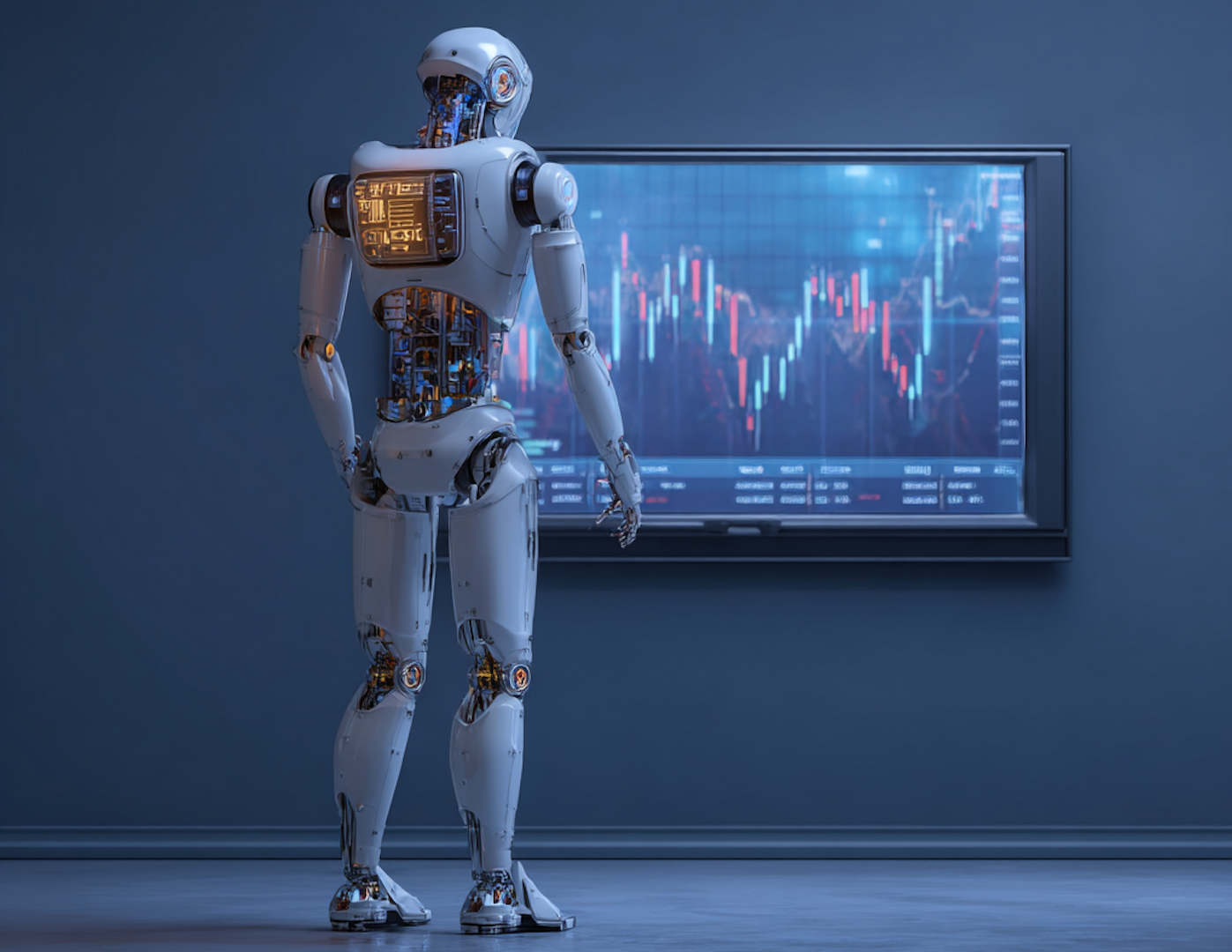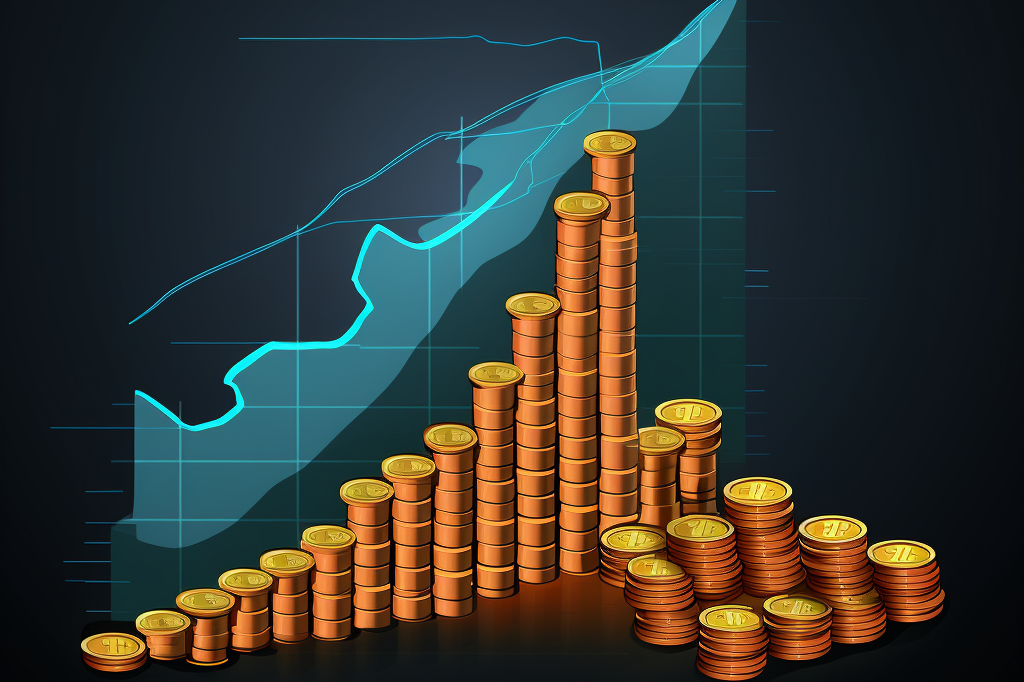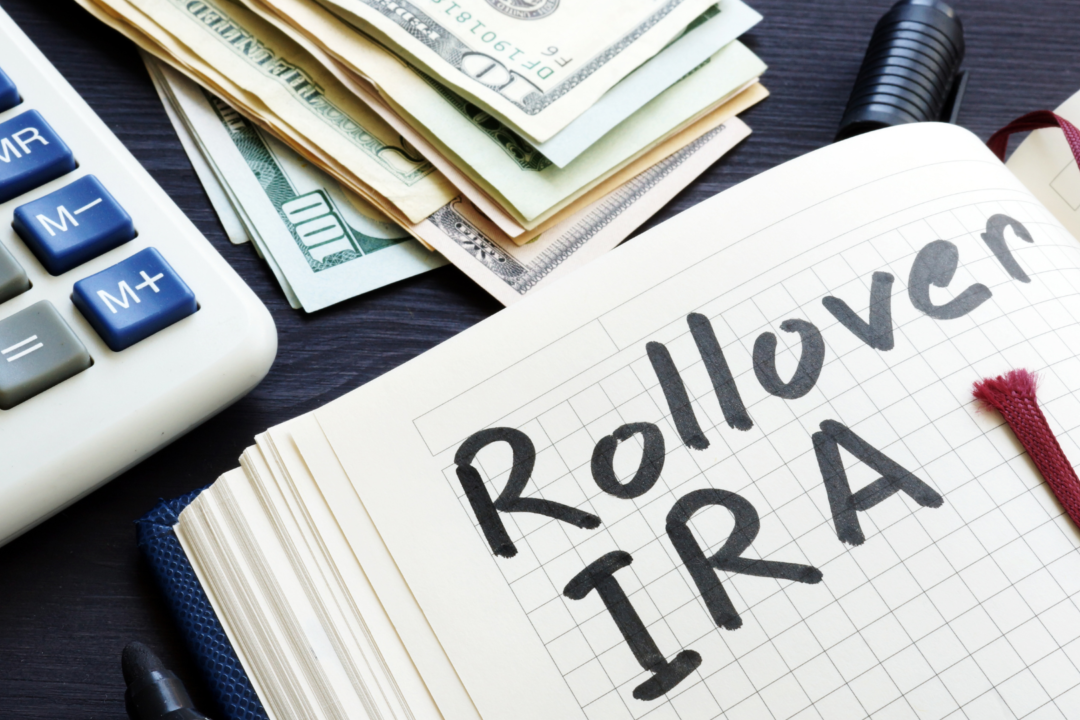Spotting patterns, charting trends, and identifying the next big thing has always been a cornerstone of investment. In the past, that edge came from experience, instinct, the latest research, and luck. Today, artificial intelligence (AI) is changing the formula.
If you’ve wondered how AI in investing might affect your IRA, you’re not alone. From robo-advisors to AI models that analyze data in a way that exceeds human capabilities, technology is changing the playing field, and investors are noticing. For many, AI can complement or even enhance traditional investment advice.
There’s no question whether AI will influence your retirement efforts. It already is. The question is how you can use it to your advantage.

Financial Market and Artificial Intelligence
AI isn’t new to Wall Street, but its adoption is accelerating. According to the International Data Financial Corp, spending on AI sale of software, services, and hardware from individual firms will accelerate from $166 billion this year to over $400 billion in the next two years.
AI enables hedge funds, institutional firms, and investment professionals to conduct a wide range of tasks and analysis–often with greater precision, including:
- Analyze massive data sets quickly
- Spot stock market anomalies before humans notice them
- Backtest investing strategies in real time to determine potential for success
For example, AI can scan decades of investment decisions and market history to predict how a particular “AI stock” might react under certain conditions. That doesn’t mean the predictions are flawless, but they do provide a data-driven foundation for smarter choices.
The momentum behind this technology is only growing.
According to International Data Corp., investment from the financial sector on AI technology will more than double, reaching $97 billion by 2027. These numbers highlight just how central AI is becoming to investment management and the broader financial industry.
For individual investors in the financial sector, the message is clear: AI is no longer experimental. It’s a mainstream tool reshaping how markets are analyzed, how opportunities are uncovered, and how portfolios are built for the long term.
5 Ways AI Can Help Build Your SDIRA Portfolio
A self-directed IRA (SDIRA) gives you more flexibility than a traditional retirement account, but that freedom also comes with the challenge of evaluating nontraditional assets. This is where AI can give SDIRA holders an edge in investing.
1. Property Analysis for Real Estate Investments
AI tools can evaluate thousands of property records at once, factoring in rental income history, local market appreciation, and even nearby infrastructure projects. Instead of manually sifting through listings, you get forecasts on potential returns and risks. This helps SDIRA investors make faster, more informed decisions about adding real estate to their portfolios.
2. Risk Modeling for Private Equity and Alternative Assets
Alternative investments like private equity or startup funding are hard to assess because reliable data can be limited. AI models can analyze financial statements, market trends, and competitor data to project potential outcomes. That doesn’t guarantee success, but it does provide another layer of analysis before committing retirement funds to higher-risk opportunities.
3. Portfolio Oversight and Performance Tracking
Managing diverse assets in an SDIRA can be challenging. AI-driven dashboards track how your holdings perform against benchmarks, alert you when it’s time to reevaluate, and highlight exposure and risk to certain asset classes. This kind of oversight helps maintain a long-term investment strategy without losing sight of daily details.
4. Detecting Patterns and Trends Across Markets
Because SDIRAs often hold both traditional and alternative assets, it’s tough to see how they interact. AI tools can find patterns and trends that connect real estate markets, equities, or even crypto exposure. This broad view helps investors spot correlations or risks they might otherwise overlook, keeping their portfolios more resilient.
5. Monitoring Compliance and Regulatory Changes
For self-directed IRA investors, staying compliant with IRS rules is essential. AI platforms are beginning to track regulatory updates and flag potential issues within retirement accounts. For example, AI can alert you if a transaction looks like it might trigger a prohibited transaction or if changing contribution limits affects your strategy. While you should always confirm with a professional, these tools can reduce the risk of mistakes that could lead to penalties.
Artificial intelligence isn’t here to replace financial advisors or due diligence, but to enhance each. By handling repetitive tasks, analyzing vast amounts of data, and spotting patterns and trends humans might miss, AI gives you a sharper lens on the markets.
For your IRA, whether self-directed or traditional, the key is knowing how to integrate these tools thoughtfully. AI in investing is a powerful complement, not a shortcut, to sound decision-making.
FAQ
Can AI help improve the performance of my Self-Directed IRA?
Yes, AI can provide enhanced support for research, risk analysis, and asset and opportunity monitoring. These can help SDIRA owners complete vital due diligence and actively maintain their portfolio with the most recent data and trends in mind. Still, finances are complex and AI is still an emerging technology. It’s still wise to check in with a financial advisor.
Can I invest in AI startups or funds through my Self-Directed IRA?
Yes, you can invest in AI startups with funds from your SDIRA account. Because SDIRAs allow you to hold private equity, venture capital, and AI-focused funds, they are an excellent financial vehicle if you want to invest in AI and related businesses. Always conduct due diligence before investing, and consider whether the investment aligns with your long-term retirement goals.
Can AI predict accurate market trends?
AI can analyze vast amounts of historical and real-time market data to identify patterns and trends humans might miss. This often improves forecasting, but it’s not foolproof. Markets are influenced by unpredictable events and investor behavior. AI is best viewed as a tool to support investment decisions, not as the final and only word.
Related Posts
January 15, 2026
What Are The Best Compound Interest Investments? Top 7 Picks
Compound interest investments are short or long term bank-type or money market…



